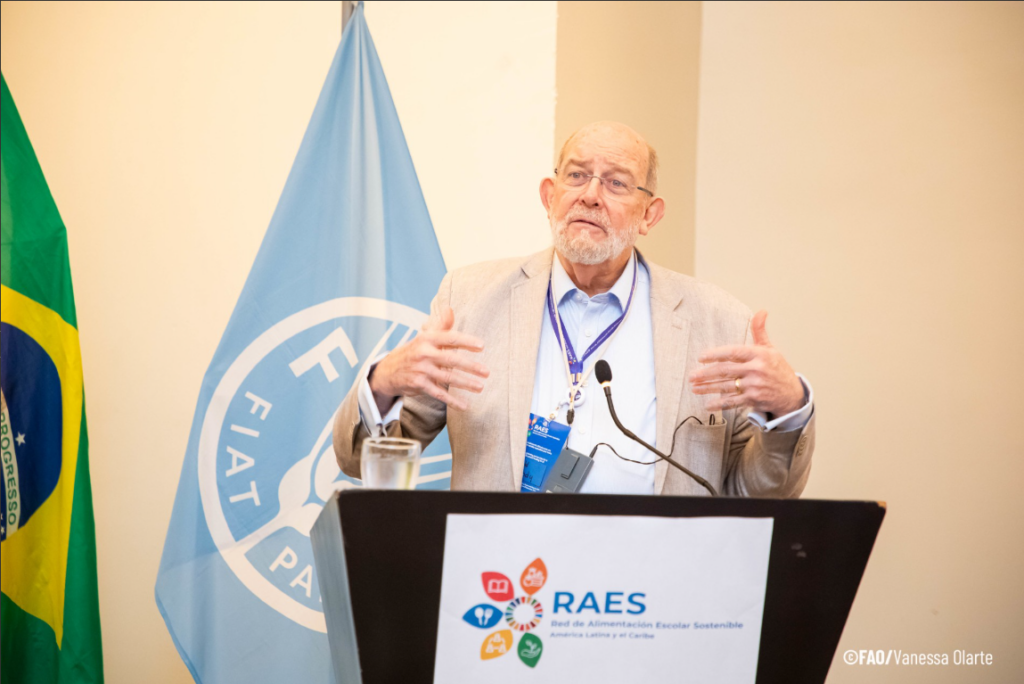Director of the Research Consortium of the School Meals Coalition emphasized RAES’s potential to showcase best practices and successful experiences of school feeding in the region.
Paulo Beraldo
Brasília, Brazil, January 20, 2025 – Professor Donald Bundy, a prominent figure in global school feeding initiatives, has expressed strong support for the RAES Network, highlighting its significant contribution to strengthening evidence on the effectiveness of school feeding programmes in Latin America and the Caribbean (LAC). Bundy is Director of the Research Consortium of the School Meals Coalition and sees the network as a “great strength,” praising the initiative, which is sponsored by the Brazilian government in partnership with the Food and Agriculture Organization (FAO), for surpassing his expectations.
These remarks were given in an interview for RAES platform carried out at the event RAES: Strengthening partnerships for a school feeding for all, held in Panama City between 21 and 22 November 2024.
One of the key aspects that caught Bundy’s attention is the role of RAES in strengthening the foundation of evidence on school feeding programmes in the region. “It is clear to me that one of the goals of RAES is to achieve a much better evidence base for the region,” he stated.

Bundy informed that one of the principles of the Research Consortium’s work is that they would not build things where they already exist and to not duplicate efforts. “So, where there were networks, we would try to work with those networks. And RAES looks to me like a fantastic example of making these partnerships a real thing. We now have really good discussions on areas that we clearly could work together”.
Examples of cooperation
Bundy cited the Global Academy of the Research Consortium as one example of this collaboration. The Academy brings together academics, practitioners, and experts to focus on school meals as a key academic and technical subject. “What could be better than strengthening this in the LAC region through RAES?” Bundy added.
He also emphasized RAES’s potential to serve as a gateway for LAC countries to engage globally. “If you look from the outside, you can learn what is happening in this region. And if you’re in the region, you can reach out to the world to share the region’s good practices.”
He commented that the Consortium is working with 4 LAC countries to produce case studies on the school meals programmes. The research is conducted using templates co-created with the countries and involves 48 nations around the world. “We have an opportunity to expand beyond that with the RAES Network”. This would give the RAES Network access to case studies globally and global partners would have access to RAES case studies.
After seeing successful experiences of school feeding programmes in the region, Professor Bundy believes that others should be aware of these best practices and successful experiences of LAC countries. “In this region, there are people dealing with difficult and complicated challenges responding in a very effective way. There are a lot of people that would be interested in that. This is of general interest and I believe RAES Network also has this role of sharing this kind of information. I do think making this a key part of the RAES Network would be a great step forward”.







